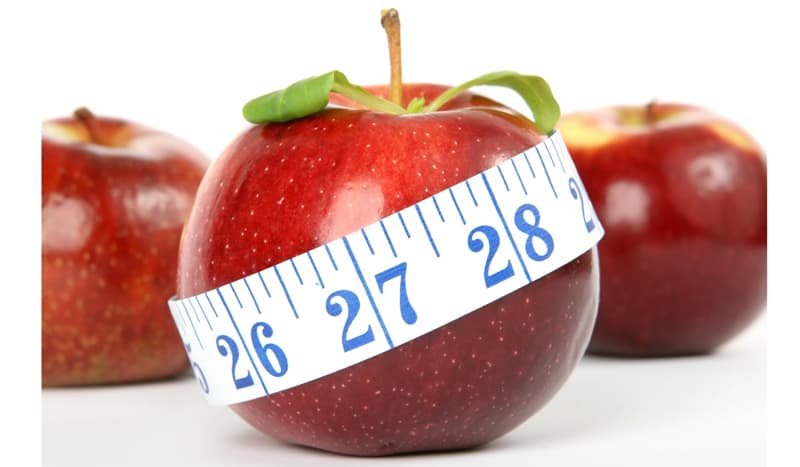Calculate Ideal Body Weight

What does "ideal body weight" actually mean? Do you know how to work it out if you're not sure in the first place what ideal actually is? Read our quick guide to find out more on how to watch your weight.
Are you looking to find out whether you have the ideal body weight for your age and height? Want to maximise your health accordingly so you not only feel better, but look better too? Naturally, ideal body weight differs a lot from person to person and it is possible to find the best weight for your body size and shape in just a few simple steps.
Why Find Out Your Ideal Weight?
Amongst other things, as we get older (especially) we want to know that our daily lives are helping to keep us healthy inside. The simplest way to see this is through our weight and fat ratio. Weight is a simple one to measure - we get on the scales and simply measure how many kilograms or stones we weigh.
By finding out the weight that you should be (for your height) you can plan your diet more effectively and if necessary you can either lose or put on weight to achieve your ideal body weight goal. But is that all it's cracked up to be?
What Is BMI?
A simple but very precise formula can be used to calculate your ideal body weight and once you have a number in your head you can feel more motivated to change the way that you eat and even train harder. The formula that is used to calculate ideal body weight is called BMI (Body Mass Index). This method uses your current weight and height to calculate your BMI. You can then establish the ideal body weight for you.
You can find Body Mass Index calculators online – you simply enter your height and weight in the boxes provided, press a button and your BMI will be displayed.
Is There An Ideal BMI?
Generally speaking, the guidelines for ideal body weight are as follows; underweight = a BMI of <18.5, normal weight = a BMI of 18.5–24.9, overweight = a BMI of 25–29.9 and obesity = a BMI of 30 or greater. However, there are currently two different ranges for healthy BMI, both of which have been created by expert but very different sources. As an example; if you use the calculator provided by The Food Standards Agency you will find that 18.5-25 is deemed to be a healthy weight whereas less than 18.5 is classed as underweight.
However, the calculator provided by The British Nutrition Foundation shows 20-25 as a healthy range and less than 20 as being underweight.
To this end, it is vital to seek medical advice from your doctor or another medical professional if you are thinking about embarking on a serious weight loss or weight gain diet.
By calculating your BMI you can get a great indication of your ideal body weight, but you may have special food requirements that need to be taken into consideration. You should also note that by calculating your BMI you won’t be factoring in your body fat ratio; however, many medical practices not have equipment that can measure this for you.
Alternative, More Accurate, Measures?
Studies by Dr Margaret Ashwell back in 2012, discovered that a measurement of your waist to height ratio was much better at predicting future hear rate disease than what was used at the time (and still is) the BMI test.
Specifically it is about ensuring the circumference of your waist is half (or less) than your height as this shows a healthy ratio that has been shown to increase life expectancy. This is also a very simple thing to measure quickly and accurately with a piece of string. Simply measure someone's height, then take the string and fold in half, then try and put the string around your waist.
e.g.. Someone 182 cm tall (c. 6 foot) needs to keep his/her waist measurement below 91 cm
Is There A Healthy Fat?
With any test, you have to understand that it doesn't take into account muscle mass and your fitness levels. Also with BMI, it doesn't take any account of the fat you have around your body. The fat you have round your middle - abdominal or visceral fat is harmful for heart, kidneys and liver. Fat building up around your hips and butt - less harmful.
You Might Like
Calculate Calories In The Food You Eat
Learn a quick way of how to calculate the number of calories in the food you eat. Great for watching the weight or just understanding your daily intake from different food groups.Find The Ideal Commercial Property
Help us help you to find the ideal commercial property with the minimum of fuss. Check out our guide for all you need to know.How Lemons Can Help You Revise
Its that time of year again when revision fever hits. New research suggests that there are ways you can maximise your revision time and they include smelling lemons!How Skiing Can Improve Your Health & Lifestyle
When you head off for your winter holiday, do you know how skiing and boarding can help to improve your health and even your lifestyle? Find out more.Get A Beautiful Body
If you want to know how you get a beautiful body, then check out our skin and body advice and tips.
Useful Websites
- Slim n Tone
Our Slim 'n' Tone Clinic uses an ultrasonic liposuction service that helps you lose weight without needing surgery or liposuction. Great for body toning. - Slimming World On-Line
The largest independent slimming organisation in the UK, with over 5,500 classes held weekly nation-wide - Slimtone Slimming Centres
Offer an interactive healthy eating weight loss and diet programme - National Slimming Centre
Specialists in medically controlled weight loss - Add Your Website Here